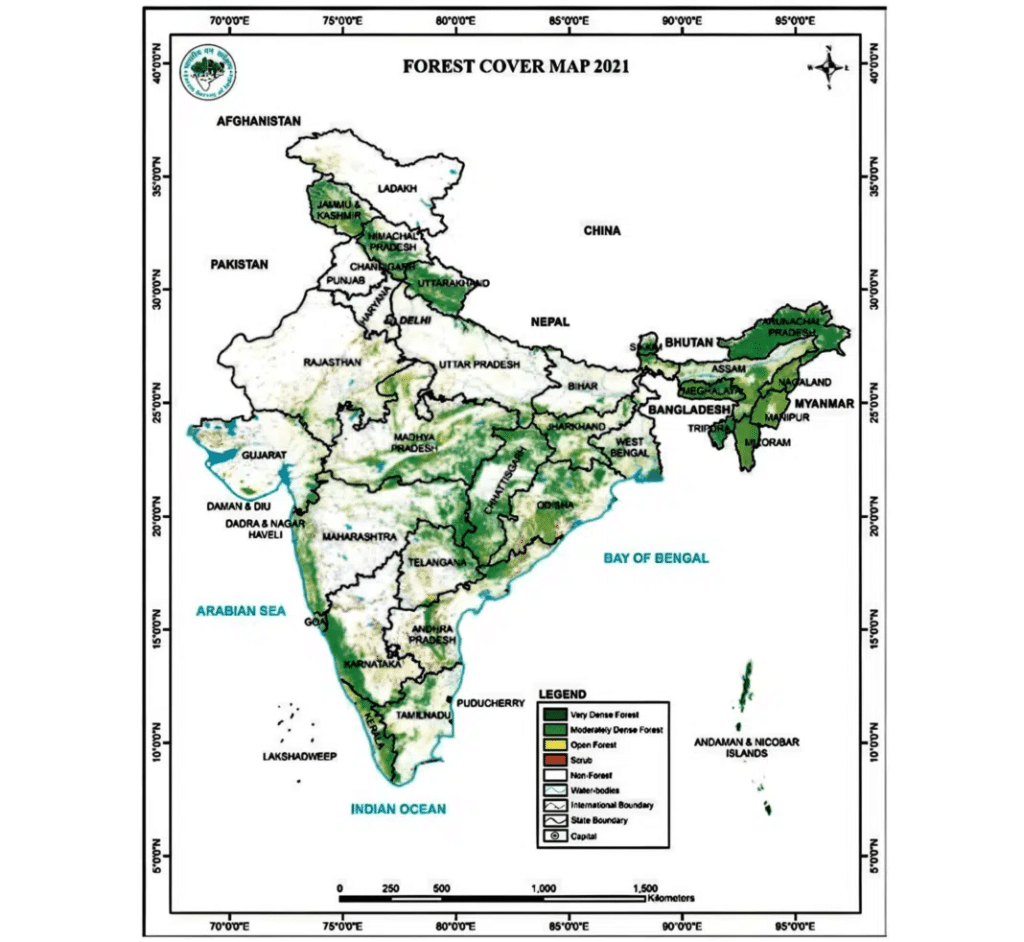The Indian government has launched a new “national” forest certification scheme, which could disrupt the “private forest certification model” dominated by PEFC and FSC.
Once established, the new scheme is “likely to evolve into an independent entity like the Bureau of Indian Standards or Quality Council of India,” according to Indian government reports overnight.
Like PEFC and FSC, Wood Central understands the standard will be voluntary. Still, whether the new model will be mutually endorsed or internationally accepted into global supply chains remains unknown.
Ditto, will the new model be used for regional export markets or just domestic consumption markets?
Private forest certification, which makes up 13% of global wood and fibre supply, is crucial in driving the trade of legal and sustainable timbers into international markets – with India exporting up to US $1.3 billion in forest products into the EU alone.
If used correctly, it is also instrumental in stemming the tide of conflict and illegal timbers entering global supply chains from Russia, Central Africa, Latin America, and Oceanic regions.
As reported in the Indian Express overnight, the new scheme known as the “Indian Forest and Wood Certification Scheme” will “offer certification for sustainable forest management, trees outside forests, and chain of custody throughout its supply chain.”
India has been critical of the private forest certification model, which it claims is prejudical against its 146 million operational landowners.

“This includes high certification costs, audit and compliance issues, inaccessibility to forest owners in remote regions, and lack of capacity due to the complexity of various certification standards,” according to Shri Bhupender Yadav, the Indian Minister for Environment, Forest and Climate Change, Labour and Employment which addressed the United Nations on Forests in October.
In April, Wood Central spoke to a source connected to the certification process who said the two globally recognised schemes, “FSC and PEFC, have set up schemes in all the countries that have the infrastructure; the challenge is to now invest in the regions that do not have sufficient infrastructure to support certification.”
“Ultimately forest certification can be expensive business – local offices need to be established, accreditation and certification bodies need to be recognised, and then a licensed auditor assesses the sustainable practices in the forest.”
India’s current “national standard”, known as the Network for Certification and Conservation of Forests (NCCF), was established in 2015 and achieved full PEFC endorsement in 2019.
In 2022, following a six-year period, India also published its first FSC Forest Stewardship Standard (FSS), which allows the country’s estimated 146 operational landholdings to sell PEFC (and now FSC) certified products through global supply chains.

Of the country’s 80.9 million hectares of forest cover, over 25 million hectares belong to agroforestry land primarily owned by small landowners (less than 2 hectares in size).
“Forest certification,” Minister Yadav said, “can address these challenges” if “all participants work together to create a sustainable future that is equitable, just, and resilient.”
The certification launch follows the development of a new, separate (to the Network for Certification and Conservation of Forests) forest management standard that will be mandatory for all forest divisions across the country.
According to Profesor Manmohan Yadav of the Bhopal-based Indian Institute of Forest Management, whilst all forest divisions must meet the new standard, “obtaining the certification would depend on needs”.
He said the new government-backed scheme will “bring greater trust and transparency into the processes and grant greater acceptability to Indian forest-based products in international markets.”
In recent months, Wood Central has reported that India has emerged as a competitor to China as a global engine room for forest products supply.
In September, Wood Central reported that Aadarsh Mohandas, Preferred by Nature’s Regional Director for South Asia, believed that now was the time for India to implement formalised quality certification and better supply chain management.
“About 70% of timber is imported from southeast Asia and Africa. Most of this is uncertified, and the quality is questionable,” he said.
“As demand is rising for ordinary timber and mass-engineered wood, certification must become part of this process to avoid the negative effects of illegal logging in supplier countries.”
According to the Indian Centre for Science and Environment, India’s demand for wood is 63 million cubic metres – 30 million cubic metres for domestic production and 33 million cubic metres from imported sources.
Logs are then imported from faraway places like Brazil, Uruguay, and Africa, manufactured by Indian plywood manufacturers, and sold into global markets.






